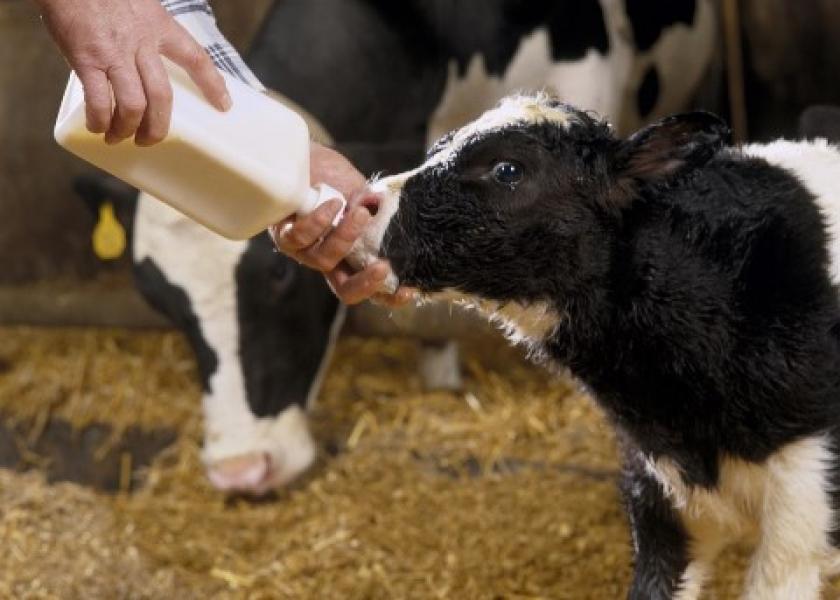Merck Animal Health Dairy Care Training Video Modules Focus on Calf Care

Merck Animal Health today introduced two new Dairy Care365 animal handling training video modules that focus on caring for calves – the lifeblood of any operation. The first video module covers care and handling of the newborn calf from birth through the first two weeks of life, while the second video module addresses handling and stockmanship from weaning to the mixing pens.
“All dairies should develop protocols for handling newborn calves, as the care a calf receives has significant, long-term effects on its adult health and well-being,” says Elizabeth Adams, M.S., D.V.M., technical services manager for Merck Animal Health. “Our responsibility to care for calves begins long before they’re born, and includes prenatal care for expectant mothers. These video modules cover the gamut, from standard operating procedures for calf care to the importance of identifying and treating sick calves as early as possible.”
From Birth to Two Weeks
The newborn calf care training video was developed by Merck Animal Health with the assistance of Jim Reynolds, D.V.M., M.P.V.M., D.A.C.A.W., a professor at Western University. This video module includes navel dipping, feeding colostrum, and vaccination, along with other management practices to ensure the calf gets a healthy start.
“After delivery, the cow returns to the milking herd and the calf’s care becomes the dairy producer’s responsibility,” says Dr. Reynolds. “Calves are born with a naïve immune system, and they need to be closely watched and gently cared for by trained personnel.”
From Weaning to the Group Pens
The second calf care training video module addresses proper management of weaned calves from the hutch to the group pens. It was developed with the assistance of Fred Muller D.V.M., a private practitioner from Sunnyside, Wash., who teaches calf care techniques to his clients and their employees.
This video module covers youngstock handling, moving calves out of the hutch, loading, unloading and trailer safety, moving into the new group pen, pressure zones, socializing in the mixing pen, and moving and sorting groups of calves.
“When calves are weaned and moved into mixing pens, it’s like their teenage years,” says Muller. “They have a lot of energy, are exploring their new surroundings and want to socialize with new herd mates. Just like teenagers, calves need to be taught how to properly behave in a group, and it’s our responsibility to build their trust and confidence so we can work with them effectively.”
Adams adds, “Calves will remember the training you give them at this age. The lessons they learn from their interactions with humans at this stage will be remembered as they become adults. Practicing good stockmanship and handling when calves are small will make it safer and easier for animals and employees in the future. This requires a commitment from dairy herd owners and managers to continually train and support employees in proper animal handling.”
The Dairy Care365 animal handling video modules are designed to help dairy producers and veterinarians train employees to provide the best animal care at every stage of life. The video modules feature real on-farm settings to provide a realistic representation of how cows behave and react to their surroundings. In addition to the two new calf care video modules, the training series includes: Introduction to Dairy Stockmanship; Low-Stress Handling of Dairy Cows and Heifers; Moving Cows to the Parlor; Handling Non-Ambulatory Cows; and Euthanasia. The training is offered in English and Spanish, and each video module concludes with testing to gauge employee understanding of the material.
Also part of Dairy Care365, the Dairy C.A.R.E. booklet includes customizable templates for developing animal care protocols, policies and standard operating procedures. Contact your local Merck Animal Health representative for more information, visit www.dairycare365.com or email info@DairyCare365.com.
Source: Merck Animal Health







